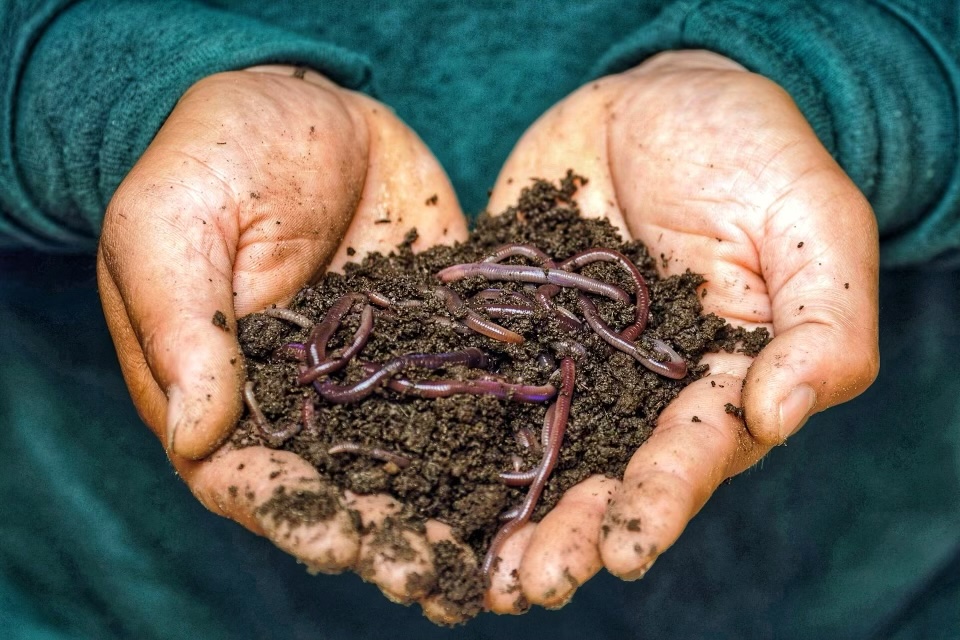In the garden or orchard ecosystem, there’s a quiet workforce at play, often overlooked but vital for soil health and plant growth: earthworms. These humble creatures, with their unassuming appearance, play a significant role in maintaining the fertility and structure of the soil, ultimately contributing to the success of our gardens and orchards. Here’s a breakdown of how earthworms help rebuild our soils and promote healthy plant growth:
Soil Aeration
One of the most crucial roles earthworms play is in soil aeration. As they tunnel through the earth, earthworms create networks of channels that allow oxygen to penetrate deep into the soil. This aeration improves soil structure, enhances root growth, and facilitates nutrient uptake by plants. Healthy, aerated soil promotes robust plant growth and reduces the risk of soil compaction, particularly in heavy clay soils like we run into here in Central Texas.
Nutrient Recycling
Earthworms are voracious eaters, consuming organic matter like decaying plant material, dead roots, and leaf litter (fallen leaves). As they digest this organic matter, earthworms excrete nutrient-rich castings, also known as worm castings or vermicompost. These castings are a natural fertilizer, rich in essential nutrients like nitrogen, phosphorus, and potassium, which are readily available to plants. Through their feeding and casting activities, earthworms play a vital role in nutrient recycling, enriching the soil with valuable nutrients that sustain plant growth.
Soil Structure Improvement
Ever heard of earthworms being called “nature’s plows”? As they burrow through the soil, they loosen it up, creating a crumbly, friable soil texture. This improved soil structure promotes better water infiltration and drainage, reducing the risk of waterlogging and soil erosion. Plus, the sticky substance in their castings, called humic acid, helps bind soil particles together, further enhancing soil aggregation and stability.
Microbial Activity Enhancement
Earthworms indirectly impact the activity of soil microbes by changing soil conditions and supplying organic matter for microbial breakdown. The tunnels created by earthworms allow beneficial soil microorganisms (bacteria and fungi) to thrive in oxygen-rich environments. These microorganisms play crucial roles in nutrient cycling, disease suppression, and soil fertility, contributing to overall soil health and plant vitality.
Plant Health Benefits
The combined effects of soil aeration, nutrient recycling, improved soil structure, and enhanced microbial activity facilitated by earthworms translate into numerous benefits for plant health and productivity. Plants grown in earthworm-rich soils often exhibit increased vigor, resistance to pests and diseases, and higher yields. Additionally, the organic matter deposited by earthworms enriches the soil with humus, which acts as a reservoir for moisture and nutrients, providing plants with a steady supply of essential resources.
In a nutshell, earthworms are the unsung heroes of your garden or orchard, working tirelessly beneath the surface to keep things running smoothly. By creating a welcoming environment for these little soil superheroes, you’re not just growing plants – you’re nurturing a thriving ecosystem.






